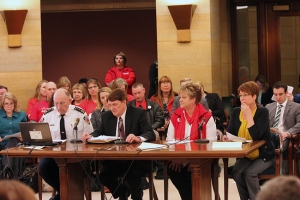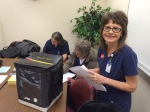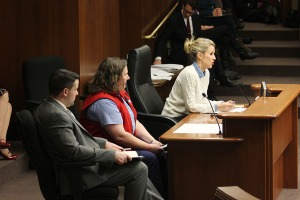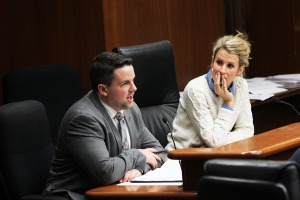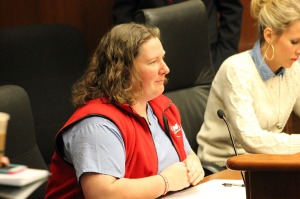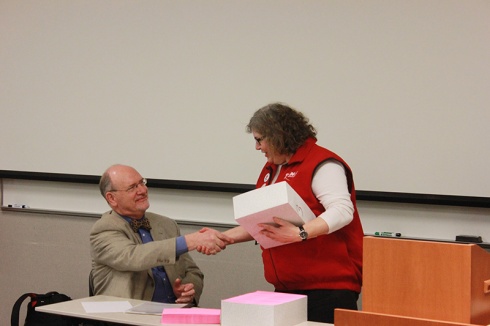By Rose Roach, MNA Executive Director
Recently, we’ve seen some lawmakers talking the benefits of the Trans-Pacific Partnership, including President Obama and 6th District US Rep. Tom Emmer. The Delano Republican’s endorsement is interesting, considering he’s never seen the whole of the TPP agreement. No member of Congress has. Only the 600 corporate negotiators know what’s really in it, which doesn’t inspire much confidence. US Rep. Keith Ellison (MN-5th) is one of the several members of Congress who have requested it but still hasn’t gotten it. All we can go on is what actual trade experts think will transpire if TPP becomes law. The consequences of the TPP are frightening, especially for anyone who routinely uses prescription drugs or depends on a living wage.
For starters, the TPP would establish an agreement for tariffs and trade provisions in 12 nations, including the US, Australia, and Japan. Some provisions would be equal, others wouldn’t. One that appears to be unilateral has been pushed by pharmaceutical companies. They hope to be able to hold on to “data exclusivity” for 12 years. That means any research on new drugs is proprietary, and it will delay the release of generic drugs from any of these nations until well past the point when a patient needs them. The cost of drugs will go up, even for veterans, who are charged less than market rate. ICU nurses see patients regularly who have to be placed on a ventilator due to heart failure simply because they couldn’t afford their life sustaining medication, medication that in many cases, costs the pharmaceutical company pennies on the dollar to actually make but because they are beholden to their shareholders, they mark-up the costs to ensure a hefty profit denying patients the ability to purchase the medication they desperately need. This “trade” agreement further entrenches these practices and puts public health at risk. Public health is not something that should be up for trade.
Because corporate regulations would be the same across TPP nations, corporations would be free to sue governments with rules or requirements that impact their business. This already exists under the North American Free Trade Agreement, but it would be greatly expanded under the TPP. It’s not crazy, and it’s already happened with countries being ordered to use taxpayer dollars to make up lost profit a corporation experiences due to laws that protect consumers. All the regulations the US has pioneered to protect its citizens, from food safety to environmental protections, could be challenged and overruled.
With such a low bar, policies that encourage the hiring of US companies and their US workers would be gone too. US federal contracts could go to any nation. “Buy local” incentives would be history, meaning companies would be encouraged to offshore even more services such as IT support, customer service, even HR and accounting. President Obama touts TPP as a “progressive” deal because it would require all nations to stick to their respective minimum wage laws. That’s pretty meaningless when each country has a different minimum wage, and some don’t have one at all.
By far, the most maddening aspect of TPP is its secrecy. The fast track approval process means our elected representatives in Congress won’t see it until it’s done, and it’s not up for debate. They’ll either have to vote it up or down. This flies against the very words in the US Constitution (Article I, Section 8) that guarantee our local representatives in Congress the exclusive authority to determine the terms of trade policy. If TPP is such a terrific trade deal, the public, through its elected representatives, should be allowed to have a full and open debate to ensure this agreement really is in the best interest of the American people.
Summing up, we give away our rights to decide our future, our good jobs, our living wages, our consumer and environmental protections, and our ability to buy cheaper product including drugs that could save our lives. In exchange, we get next to nothing. That doesn’t sound like a very good trade at all.

